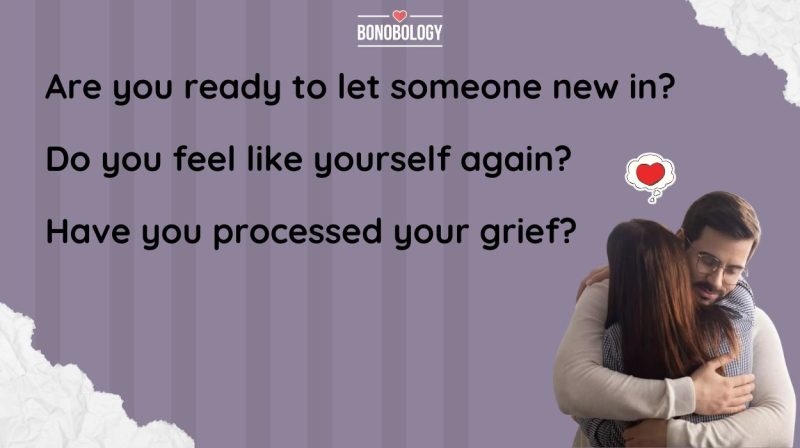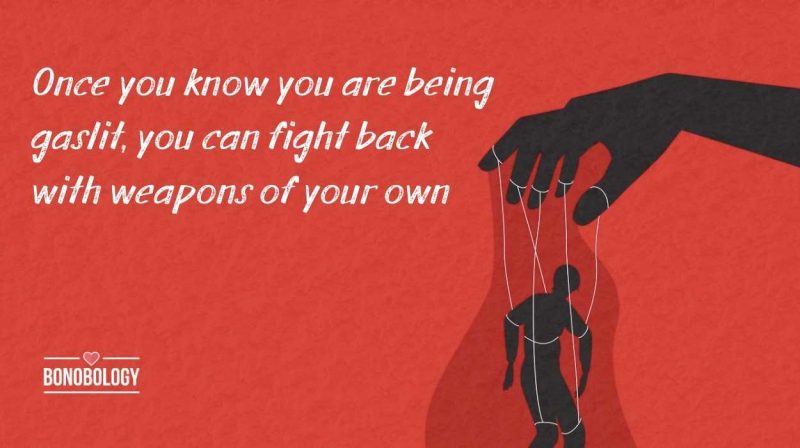The phrase ‘holding space for someone’ is the buzzword these days. At the first instance, you might be mistaken that it is synonymous with giving someone space. But that is not what it means. Remember that episode from This Is Us in which Randall had the worst anxiety attack ever? And all that his brother Kevin did was be there for him, without any unrequited judgment or advice. Yes, that’s it.
To get detailed insights on holding space for someone meaning, we spoke to emotional wellness and mindfulness coach Pooja Priyamvada (certified in Psychological and Mental Health First Aid from Johns Hopkins Bloomberg School of Public Health and the University of Sydney). She specializes in counseling for extramarital affairs, breakups, separation, grief and loss, to name a few.
What Does It Mean To Hold Space For Someone?
Table of Contents
According to Pooja, “Holding space for someone means letting them process and express their feelings, remaining there to support them without any judgment or unasked for suggestion.”
Maybe your sibling is struggling with coming to terms with his gay identity. Or your friend has lost a parent. Or your parents are going through a separation period or are worried about life after divorce. Or your relative is suffering from a mental illness. Or someone you know had a miscarriage.
In such situations, they don’t need a caretaker or problem fixer. All they need is someone who can be there for them, patiently listening, in a neutral, open, non-judgmental and attentive manner. To be truly there for someone sounds so simple but in reality, it is much more complex than that. Let’s see how.
Related Reading: The 7 Fundamentals Of Support In A Relationship
Tips For Holding Space For Someone
Humming the theme song of F.R.I.E.N.D.S right about now, “So no one told you life was gonna be this way. Your job’s a joke, you’re broke. Your love life’s DOA. It’s like you’re always stuck in second gear. When it hasn’t been your day, your week, your month or even your year, but…”
“…I’ll be there for you (When the rain starts to pour), I’ll be there for you (Like I’ve been there before), I’ll be there for you (‘Cause you’re there for me too).” Singing this song for someone is not enough though. What are the tips to be actually there for someone? By holding space for someone. And how to do this? Let’s find out.
1. Listen actively
Being a good listener is an art. It requires a lot of patience and empathy. Sarah was telling me about her breakup but all I could think about was whether I should order pasta in white sauce or red sauce. This happens to all of us. Our mind wanders. We pretend to listen but we are not even fully present.
So, when holding space for someone in grief, try to be fully present in the moment, with all your mind, body and soul. Be friends with silence. Why is it important to be a good listener? Because when you provide someone with a space of stillness, their suffering dissolves in that moment due to your warmth and acceptance. It then becomes a safe space, where their trapped emotions can get released.
Holding space for someone could mean paying attention to their mannerisms. The tears in their eyes. The way their legs continuously shake in anxiety. The manner in which they fidget with their fork. The way their hands make gestures as they speak. The way their voice cracks in the middle. Paying attention to these little things will help you ground yourself and be in the moment.
2. When holding space for someone, don’t offer solutions
Every problem cannot be fixed by a logical solution. Some problems are emotional in nature and the solutions to those problems cannot be given by the mind. Unfortunate things happen and when someone rants to you about these things, maybe they are just looking for a space where they can vent out their overwhelming emotions without being judged. If you allow them to do so, you are fulfilling one of the characteristics of a healthy relationship.
I was telling my friend Taylor how I feel anxious sometimes. And even before I could finish sharing my feelings, Taylor started offering solutions like, “Hey I think you should use less Instagram. And become a part of a co-working space.” But my anxiety was deeper than that. It came from the separation of my parents and the trauma of my past relationships. Using less Instagram and joining a co-working space couldn’t fix those problems, right?
So, don’t try to be a therapist or a fixer. If someone is coming to you with a problem, deep down they already know what needs to be done about it. When holding space for someone in grief, try to leave your ego, interests, beliefs and opinions at the door. Don’t interrupt their experience and speak for them. Let them speak for themselves. Let them tell their story, they know it better than you do.

3. Don’t trivialize their feelings
Pooja emphasizes, “Never judge the person’s process of grief, they might go to and fro in the various stages of grief after a breakup. Be patient with them. Let them process their grief the way they want to. Be in a supportive role and never try to lead the process.”
If someone didn’t clear a competitive exam after multiple attempts, it is unfair to say things like, “I know you have been depressed about failing the exam but it is just an exam. People go through problems that are so much bigger than that. At least you have a roof over your head. And at least your parents are alive. Be grateful.”
Yes, it could have been worse. But right now, in their heads, their problems are very big. And if you trivialize them, they will start feeling guilty about being so sad. That’s the last thing you want to do when holding space for someone.
Related Reading: I Need Space – What Is The Best Way To Ask For Space In A Relationship
4. Don’t make it about you
Pooja articulates, “When holding space for someone, don’t make it about yourself. It is about their experience and feelings and not yours.” Maybe you have a lot of advice and experience about what your friend is going through but it may not be the right time to share them.
For example, your friend Paul just lost a pet. If you have gone through similar trauma, you would be tempted to say, “Hey, I know what it feels like. I was also hurting when I lost Leo. It took me a while to make peace with it. I still miss Leo and can’t stop thinking about him.”
But this conversation was supposed to be about Paul’s pet Cookie and how Paul is feeling. It was not supposed to be how much you love Leo or how much you miss Leo. Yes, your intentions might be to make Paul feel that you empathize but let Paul take center stage and speak about his feelings. This is one of the tips to build harmonious relationships.
5. Never be judgmental
What to say when holding space for someone? Pooja answers, “Say: I hear you. I understand that it is tough for you. It is okay to not be okay. I am here for you. What can I do for you?”
If someone cheated on their partner and comes to you feeling guilty about it, you might be tempted to say, “What you did was morally questionable. You deserve to feel this way. How could you even do something that is so sinful? I thought you were better than this! You were such a loyal person, what has come over you?”
So, if you googled, “holding space for someone meaning”, it means to be warm, open and accepting and allow people to experience feelings they are suppressing. If they want to cry, let them. If they want to be angry, let them. Don’t judge. Just be empathetic and compassionate. Respect their truth. Focus on what they need. If you constantly judge them for their actions, then it may lead to an unhealthy relationship.
How Does Holding Space For Your SO Benefit Your Relationship
Heather Plett, author of The Art of Holding Space, has written, “What does it mean to hold space for someone else? It means that we are willing to walk alongside another person in whatever journey they’re on without judging them, making them feel inadequate, trying to fix them, or trying to impact the outcome.
“When we hold space for other people, we open our hearts, offer unconditional support, and let go of judgment and control.” And how does holding space for someone, like your significant other, benefit your relationship? Let’s find out.
Related Reading: 11 Things That Happen In Relationships Without Trust
1. Holding space for someone increases trust
Reminds me of the lyrics of Sign Of The Times by Harry Styles: “We don’t talk enough. We should open up. Before it’s all too much. Will we ever learn? We’ve been here before. It’s just what we know…” So, do you talk enough and open up with your partner? Most importantly, do you trust each other?
What are the benefits of holding space for someone? Your relationship can become a non-judgmental and trustworthy space in case of a crisis. When you hold space for your significant other, it makes them feel less alone and less critical about themselves. They feel like they are accepted, even with all their flaws and imperfections. It also makes them feel that they can rely on you, regardless of how uncomfortable their problems are. Hence, holding space counts as one of the important components of trust in a relationship.
2. Can foster a new level of intimacy
What to say when holding space for someone? Sometimes it’s better to not say anything at all. Pooja points out, “If your partner has had a bad day at the workplace and does not want to divulge the details, don’t force them. Or if your partner is going through something they don’t feel like sharing right away, understand that, tell them you are there for them, whenever they feel comfortable.”
When you give your partner space, you give them time to process their emotions. This makes them feel free, instead of feeling suffocated by the idea of being answerable to someone. This freedom directly affects emotional safety in your relationship. Giving each other space can actually bring you both closer.

3. Makes the relationship a safe space
How to hold space for someone who is angry? Pooja answers, “When you’re trying to hold space for someone who is angry, let them vent safely without harming themselves or you. Give them some way to express their anger in a healthy way like an aggressive sport.”
The point is to give people the permission to trust their own intuition and wisdom. Make them feel safe enough to fail and know that they will get to try again. Holding space for someone means allowing space for courage to take risks so they can explore their own resilience. Try to empower them to trust themselves, their intuition and their own inner resources. This will help you connect with your partner on a deeper level.
But also remember to establish boundaries for holding space for someone. How to set them? Pooja answers, “One must be in the listening and caregiving space to do so. There is no point in trying to hold space for anyone when one is themselves not emotionally well or fully there. So protect your own mental health first.”
Another element of setting boundaries for holding space for someone is to hold space for yourself. Pooja points out, “Sometimes we need to hold space for ourselves which means doing all the self-compassion and self-care activities that we do for others for our own self.”
If at any point you feel overwhelmed by someone else’s emotions or your feelings, don’t shy away from seeking professional help. A therapist has been trained to hold space for their patients, after all. Our counselors from Bonobology’s panel are just a click away.
Your contribution does not constitute a charitable donation. It will allow Bonobology to continue bringing you new and up-to-date information in our pursuit of helping anyone in the world to learn how to do anything.























Featured
Imago Therapy: What It Is, How It Works, Benefits And Considerations
Banksying In Dating: What It Means and How to Recognize It
Am I Moving On Too Quickly After Death Of Spouse—How To Decide
15 Signs You’ll Get Back Together With Your Ex
How To Get Over Trust Issues — A Therapist Shares 9 Tips
Learn How To Forgive Yourself For Hurting Someone You Love
How To Find Peace After Being Cheated On — 9 Tips From A Therapist
How To Deal With A Cheating Husband
35 Disturbing Signs Of Gaslighting In A Relationship
What Is Narcissistic Ghosting And How To Respond To It
‘My Husband Starts Fights And Then Blames Me’: Ways To Cope
How To Rebuild Your Life After The Death Of A Spouse: 11 Expert-Backed Tips
My Husband Died And I Want Him Back: Coping With Grief
“Am I Unlovable” – 9 Reasons You Feel This Way
11 Signs Your Girlfriend Was Sexually Abused In The Past And How To Help Her
Coping With Breakups: The Must-Have Breakup Apps For Your Phone
15 Signs You Are Wasting Your Time Trying To Get Your Ex Back
Why Are You Obsessed With Someone You Barely Know — 10 Possible Reasons
33 Phrases To Shut Down Gaslighting And Silence Gaslighters
The Emotion Wheel: What It Is And How To Use It To Build Better Relationships